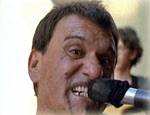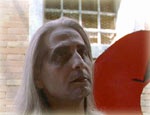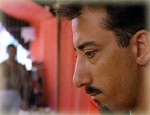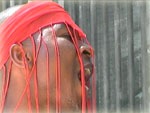BALORDI
Mirjam Kubescha
The heart of the enchanting Tuscany landscape is home to one of the best guarded prisons in Italy. This fortress in Volterra is also backdrop for the performance of Bertolt Brecht's Dreigroschenoper, played by the inmates themselves.
These tattooed, muscle packed men exhibit a completely different side of themselves as they run around the theatre like puppies. For quite some time, it seems as if we are watching two different documentaries: one about hard prison life, and the other about frolicsome actors in eccentric plumage.
But gradually the two melt together: one prisoner talks about Kalashnikovs while he is ready, with thick make-up on, to jump onto the stage.
Stories about the isolation cell, where one of them from pure misery made friends with a rat, are alternated with images of the rehearsals, the singing of critical songs and practicing of erotic dance steps. Meanwhile, we learn more about their background.
One convict already had a gun when he was a fourteen-year-old boy in the slums of Palermo. Another always dreamt of joining the Mafia or becoming a doctor. Now that they are all in the same boat, these former street kids have combined forces.





